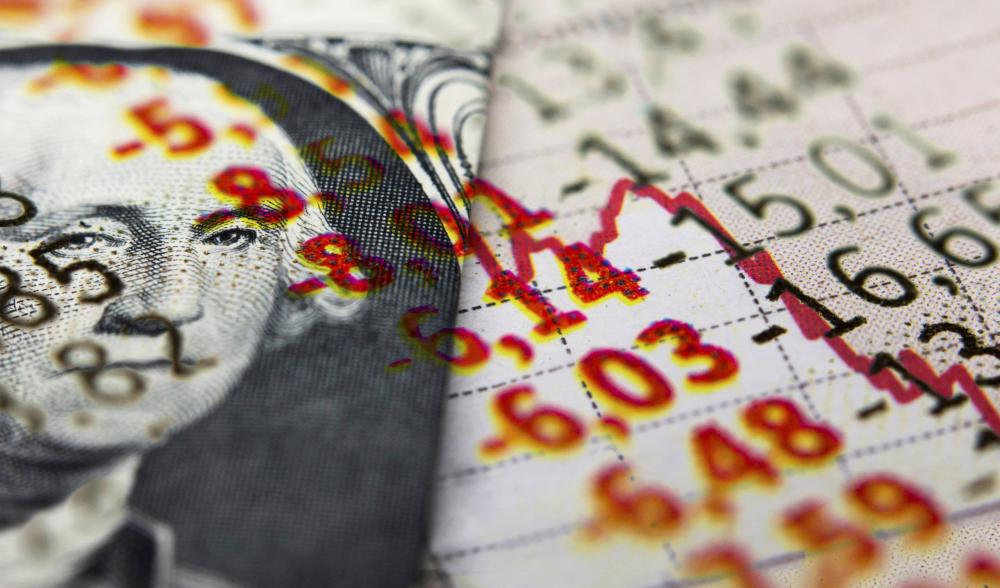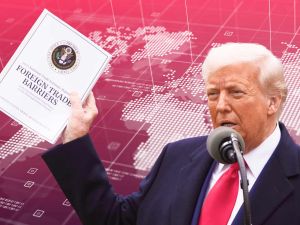In this week’s edition of Market Pulse, US investors brace for key inflation data and the Federal Reserve’s interest rate decision, while Keith Gill’s substantial investment in GameStop sparks a surge in meme stocks. Additionally, we look at significant movements in interest rates across the Eurozone, OPEC+ oil production cuts, Indian stocks and the UK housing market amid evolving economic conditions.
The focus this week: It’s not over till it’s over
A lot will come into view for US investors this week, with May’s inflation figures set to be released on Wednesday and the Federal Reserve (the Fed) set to deliver its next interest rate announcement later that same day.
April’s round of inflation numbers showed consumer prices were cooler than expected, by the slimmest of margins, which was a big relief to investors after four straight months of hot surprises. Economists expect May’s inflation report to show the overall pace of price gains held flat at 3.4%, while the core measure, which strips out volatile food and energy items, dipped slightly to 3.5%. And that would mark a tiny step in the right direction, but it wouldn’t shift the fundamental problem: the fact that last year’s inflation-cooling momentum has all but stalled, partly because of a rock-solid labour market that’s powering some strong consumer spending – despite higher prices and borrowing costs.
That explains why the Fed might be wary about its next move. The central bank, which has been battling the nation’s hot inflation with a series of interest rate hikes, has said that it wants to see price pressures crumble once and for all before it begins lowering the country’s lofty borrowing costs. So with inflation still far above the Fed’s 2% target and falling at only a snail’s pace, traders see virtually no chance of a rate cut this Wednesday. Instead, they expect the first reduction in September, followed by another in December. But if May’s inflation report shows prices heating up again, traders will end up dialling back those bets, which could send stock and bond prices tumbling.
In the calendar
- Monday: China loan growth (May), eurozone economic sentiment (June).
- Tuesday: UK labour market report (May). Earnings: Oracle.
- Wednesday: Fed interest rate announcement, China inflation (May), UK economic growth (April), US inflation (May). Earnings: Broadcom.
- Thursday: Eurozone industrial production (April), US producer prices (May). Earnings: Adobe.
- Friday: Bank of Japan interest rate announcement, eurozone trade balance (April), US consumer sentiment (June).
What you might’ve missed last week
US
- Meme-stock godfather “The Roaring Kitty” sent GameStop’s shares soaring (again).
Europe, Middle East and Africa
- The European Central Bank cut interest rates for the first time in nearly five years.
- OPEC+ extended its oil supply curbs, while also detailing a plan to bring some production back online.
Asia
- Indian stocks were whipsawed by election surprises.
UK
- UK services firms experienced slower growth and weaker inflation in May, while manufacturers reported a return to growth after a long slowdown
- Blackstone made a $740 million bet on the country’s rental homes
- Wet weather and ongoing cost-of-living pressures kept a cloud over British consumers in May
- House prices rose in May, bouncing back after two months of decline
Why it matters
American trader Keith Gill – a.k.a. “The Roaring Kitty” – posted a screenshot on Reddit about a week ago that seemed to show he’d spent $174 million building a position in GameStop. The big reveal by the godfather of the 2021 meme stock frenzy had the struggling video game retailer’s shares surging 74% when markets opened on Monday – adding $6 billion to the company’s total value at the time – before mellowing to a 21% gain by the close. The melee triggered a rally in other meme stocks too, including AMC, SunPower, Beyond Meat, BlackBerry, and Reddit.
In a widely telegraphed move, the European Central Bank delivered its first interest rate cut in nearly five years, moving faster than its US and UK counterparts in lowering borrowing costs after the biggest inflation surge in a generation. The move took the bloc’s benchmark deposit rate to 3.75%, down from a record high of 4%. But the Bank stopped short of indicating that more rate cuts would soon follow, which is understandable considering it also lifted its inflation forecasts for this year and next by 0.2 percentage points each.
OPEC+ has announced several production cuts and extensions to these cuts since 2022, in an effort to prop up oil prices. And at its latest biannual meeting last week, the cartel agreed to further extend those cuts – in some cases to the end of 2025 – while also outlining a plan to bring some oil production back online later this year. That was earlier than some traders expected, and that sent oil prices lower last week.
The Nifty 50 – India’s benchmark stock index – rallied 3.3% on Monday to a record high, with exit polls forecasting a landslide election win for Prime Minister Narendra Modi, whose third term promised investors a continuation of infrastructure-led economic growth and market-friendly reforms. But the rally proved very short-lived, with the Nifty 50 tumbling 5.9% on Tuesday – its worst day in more than four years – as poll tallies showed Modi’s party losing its parliamentary majority in the world’s most populous country.
The slowdown in UK services inflation is a hopeful sign for a potential Bank of England (BoE) interest rate cut. Economists had expected the BoE to cut rates in June, but investors are now betting one won’t come before August. Lower interest rates would reduce mortgage costs and help boost British house prices – and even the prospect of lower rates has started to revive the housing market.
Disclaimer
This publication has been produced with Finimize. As with all investing, your capital is at risk. This publication does not contain and should not be taken as containing, investment advice, personal recommendation, or an offer of or solicitation to buy or sell any financial instruments. Prospective investors should consider seeking independent financial, tax, legal and other advice before making an investment decision.
*As with all investing, financial instruments involve inherent risks, including loss of capital, market fluctuations and liquidity risk. Past performance is no guarantee of future results. It is important to consider your risk tolerance and investment objectives before proceeding.





